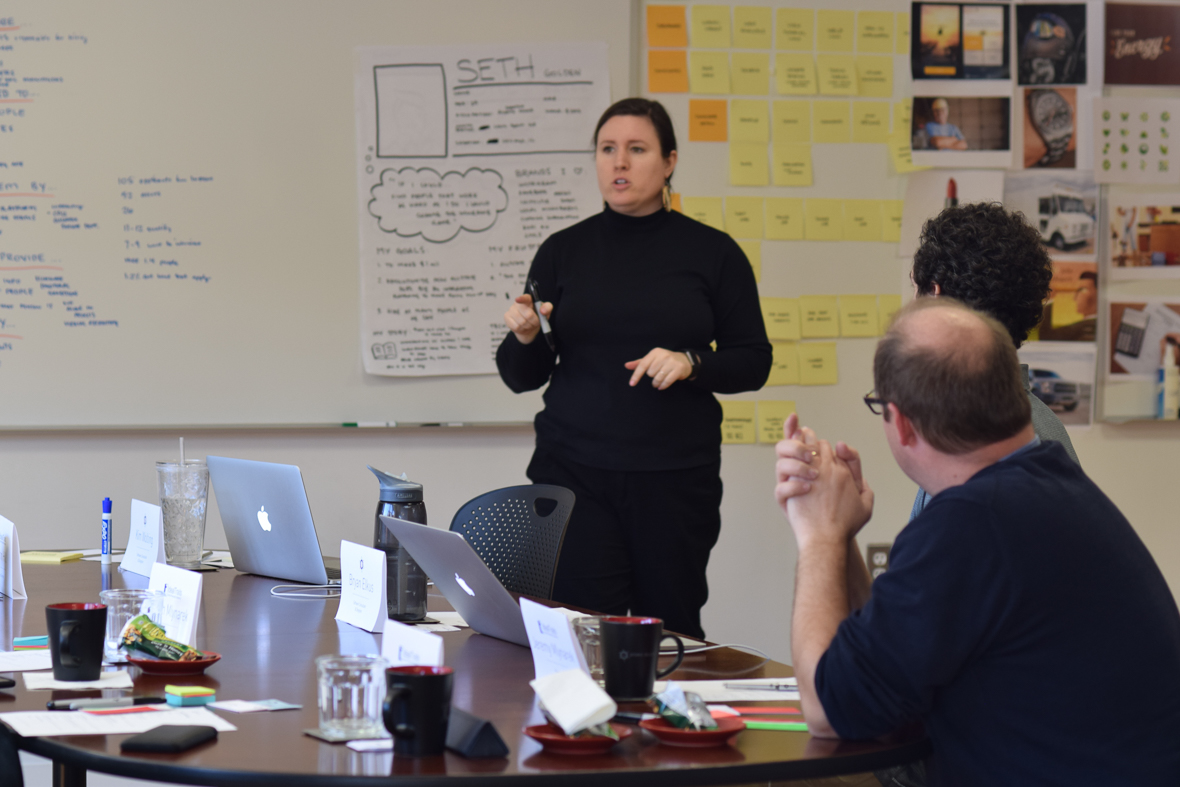Practicing empathy is for more than designers. Having empathy makes you a better designer software consultant. The notion that being empathetic can make you a better consultant is not a new one. The word “empathy” is thrown around a lot in software, but usually in a buzzword-like fashion. So, what does being empathetic mean in our line of work? How should we practice it? And who deserves it?

What Is Empathy?
Empathy means being able to understand and share the feelings of another being. It’s the ability to place yourself in another person’s shoes. Understanding what empathy means and being able to practice it are two entirely different things, though.
How Can You Practice Empathy?
To be empathetic, you should:
1. Set your judgements aside.
To understand what another person is experiencing, you need to drop your own personal judgements and start with a clean slate. Doing this can help you absorb what the other person is telling you and prevent your own biases from skewing your emotional response. It can also help you develop a better connection with the person.
2. Actively listen.
Of course, to understand another person, you need to listen. Actively listening means more than just listening to the words coming out of their mouth, though. You should demonstrate that you are hearing and comprehending what the person is saying with your body language, by making eye contact and nodding when appropriate.
Always ask clarifying questions when you are unsure if you’re following. In fact, you should even ask clarifying questions when you think you do understand. It will show that you are actively engaged and may give you further insight. Reflect back what the person has said. This will validate that you are, indeed, understanding them.
3. Relate, if you can.
If you can relate to what the person is saying, do so. Be careful not to steal the show, though. This isn’t about you. Offer an anecdote that will show you understand, on some level, what the person is feeling or experiencing.
If you cannot relate, do not pretend you do. It is okay to say something along the lines of, “I can’t imagine what that would be like. Thank you for sharing with me.”

Who Deserves Your Empathy?
Ideally, you should try to be more empathetic in every aspect of your life. I’m not here to preach at you, but I will suggest some ways to utilize empathy in your professional life, as a software consultant—whether that be as a designer, developer, team lead, etc.
There are three main groups of people who deserve your empathy:
1. Your Users
Ah, but of course! Being empathetic towards your users means remembering that you are not creating a product for yourself. You need to set your own preferences aside in order to create the best solution for their problem.
What does this look like? Let’s say, personally, you hate dark interfaces. Just because you dislike them, it doesn’t mean you should write them off–especially for an application that might be used in darker settings, or open for long periods of time. A darker interface might be exactly what your users need.
Practicing empathy with your users also means actively listening to them and their needs via user interviews and testing. You should be constantly validating (reflecting) your solution with them throughout the project.
2. Your Customers
In software, empathy is usually focused on the user. Don’t get me wrong; it definitely should be this way (which is why users were number one on this list). However, you should also create an empathetic relationship with your customers. After all, they are the ones working with you to build a solution for the end users.
What does being empathetic towards your customer mean? Give them some slack, ask questions, and try to relate. Maybe the product owner made a decision you don’t support. Don’t skip ahead to judging them. Instead, ask clarifying questions to try to understand what led to their decision. Maybe there have been layoffs in their organization, and they felt they needed to make the safest choice at the time. Maybe they gained more insight from your users, and through some miscommunication, the information wasn’t relayed to you.
Being more empathetic towards your customers will strengthen your relationship, and set your project up for smooth sailing.
3. Your Co-workers
Having an empathetic relationship with your co-workers is important to create strong team bonds, and to function well in the long term.
What does this look like? Maybe your pair seems a little cranky today. Instead of giving them attitude, ask what’s going on. Maybe their newborn kept them up all night, and they didn’t realize their frustration was coming through at work. Relating to their lack of sleep will alleviate your frustration, and in turn, help you both continue working together towards your project’s goals.
In my personal experience, being empathetic toward co-workers is the easiest of the three. These are people we work with every day, and we often share common interests. This tends to make it easier to relate to them, as well as genuinely care for their well-being.
Bring It All Together
Now that you know how to practice empathy and who deserves your empathy, go forth and empathize! Make it a personal goal to stop yourself from jumping to judging. Instead, take a step back and try to put yourself in that person’s shoes. It’ll make your software better, and your time creating it—both with your co-workers and customers—more enjoyable.

